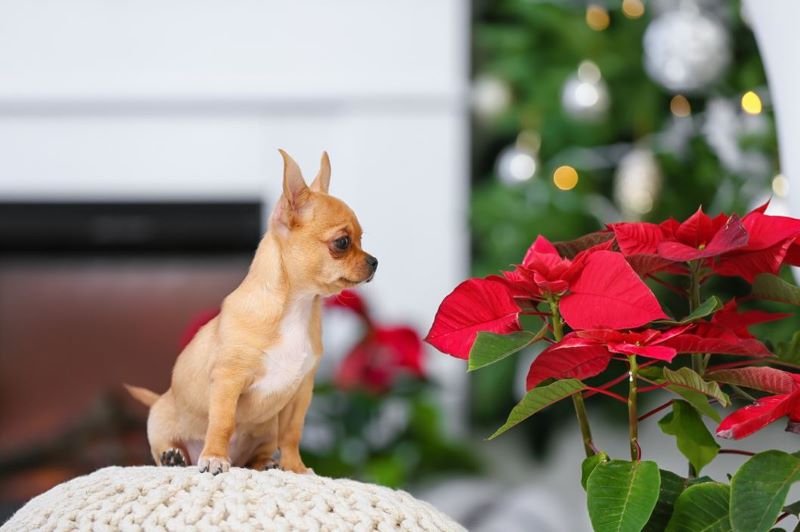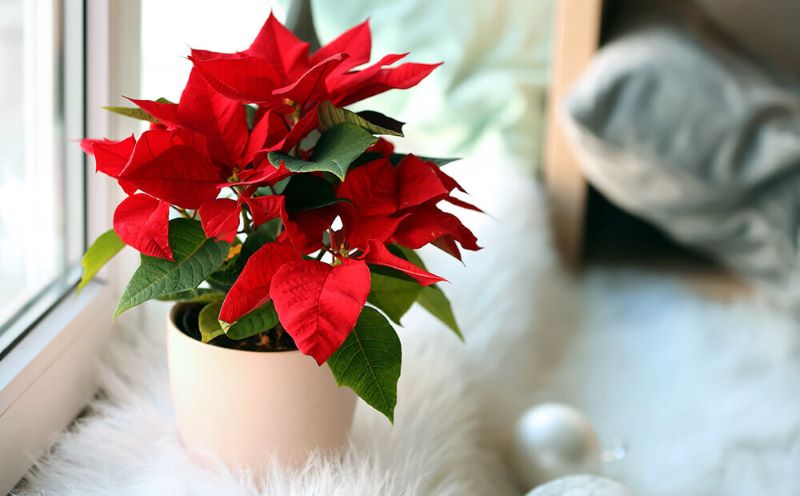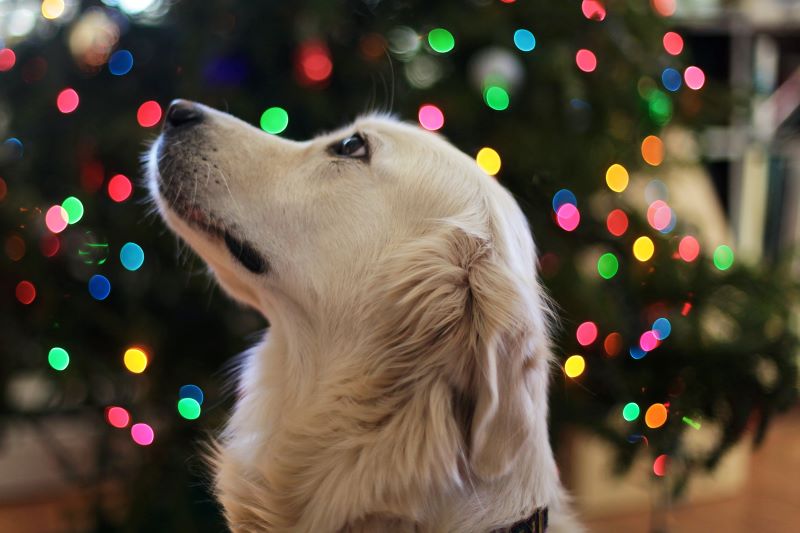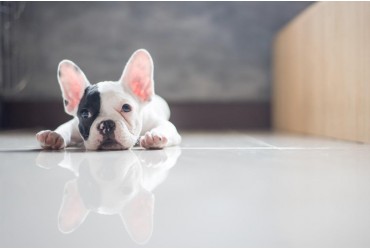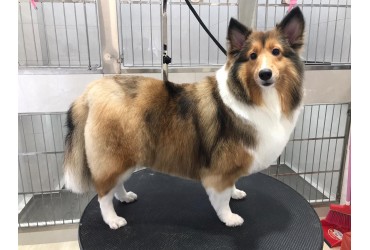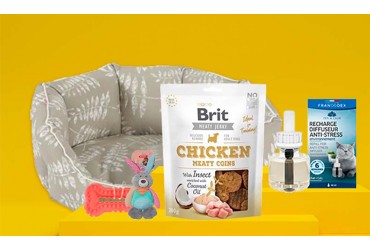Popular Christmas Plants: Poisonous or Safe for your Pets?
Christmas is almost here! Which means it’s time to get those decorations out of hiding and hung up around your homes to get into the festive spirit! And this includes decorative plants! If you are planning to bring holiday foliage into your home this season, do your research to ensure which plants are safe, which should be kept out of your pet’s reach, and which should be avoided entirely before purchasing them. There are some types of decorative plants that are toxic to dogs and cats. In some cases, only mild indigestion and discomfort will result; in other cases, the toxicity can lead to more severe health problems, and even fatalities
Poinsettias Plants – Toxicity Level 2/5
Ready for some good news? The supposed toxicity of this Christmas classic is nothing more than an old wives' tale. While eating a few leaves can cause mild stomach upset, the rumors of its fatal effects are overrated.
The poinsettia plant’s brightly colored leaves contain a sap that is irritating to the tissues of the mouth and esophagus. When ingested, they can cause nausea and vomiting, but it would take a large amount of the plant’s material to cause poisoning, and most animals won’t eat such a large enough amount because of the irritating taste and feel from the sap. However if you’re worried, your best bet would be to keep them out of reach.
Holly & Mistletoe – Toxicity Level 4/5

Another two popular holiday plants you might want to be cautious of is the Holly and mistletoe plant! These plants, along with their berries, have a greater toxicity level than the poinsettia.
The Mistletoe contains multiple substances that are toxic to both dogs and cats, including toxalbumin and pharatoxin viscumin (lectins, phoratoxins). It is often known for causing severe intestinal upset as well as a sudden and severe drop in blood pressure, breathing problems and even hallucinations (showing up as unusual behavior).
Some symptoms to look out for if you suspect your pets consumed these plants are intestinal upset, such as vomiting and diarrhea, excessive drooling and abdominal pain. If not careful and your pets manage to get into them, a large enough amount ingested can potentially cause seizures and in extreme cases, death.The leaves and berries of holly and mistletoe plants, even the dried plants, should be kept well out of your pet's reach, or better yet, kept out of the home altogether.
Amaryllis – Toxicity Level 4/5
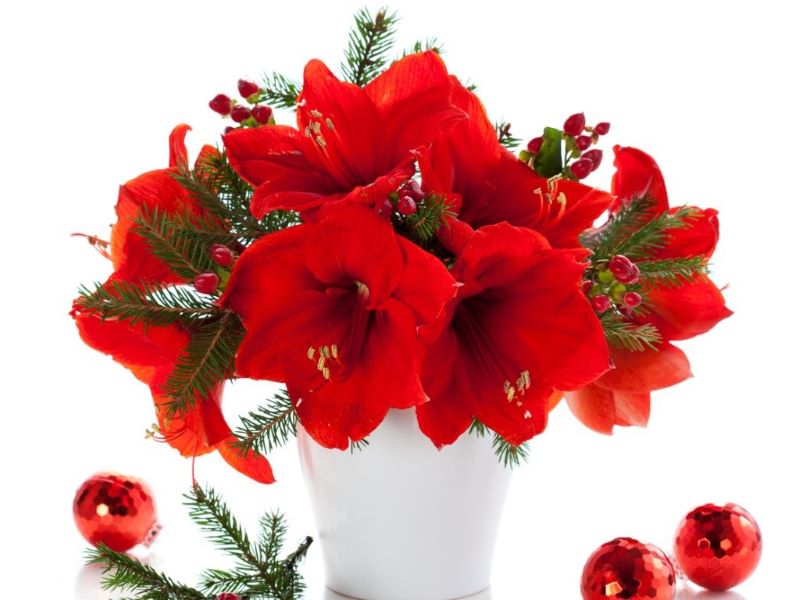
Another best selling Christmas plant, the Amaryllis is a blooming beauty that can flower for up to two months if kept warm and dry. Not only are they a popular gift for Christmas parties at home, they’re also a poisonous one to your furry friends. The stalks, flowers and bulbs contain phenanthridine alkaloids which are toxic to both dogs and cats. The highest proportions are in the bulbs. Eating amaryllis can cause vomiting, changes in blood pressure, tremors and seizures.
If you’re thinking of decorating with this flower or if you received it as a gift, they might be better used for decorating your desk at work to keep your pet safe (unless there are pets in the office). Unless you know of a spot that is 100% out of reach from your pets!
Pine Needles – Toxicity Level 2/5
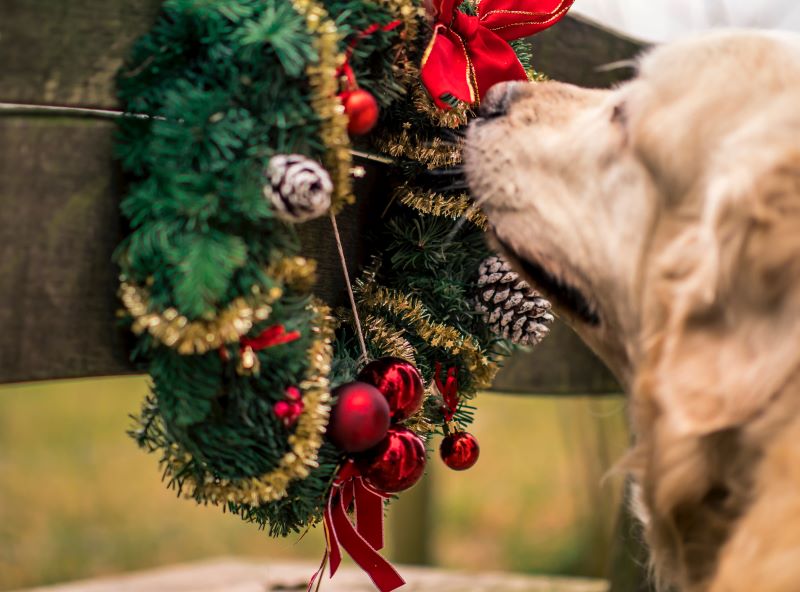
Whether they are on your Christmas tree, a wreath or some garland, pine needles can be a problem if ingested. The needles can puncture or irritate the lining of your dog’s stomach, and the oils can irritate the mucous membranes. The needles may not kill your pet, but they can make him really uncomfortable and ill.
Abdominal pain, salivation, excessive vomiting or diarrhea, or blood in vomit or stool could indicate an injury or obstruction from the non-digestible, pointed needles. These needles can also get stuck between your pet’s toes or in their foot pads which can cause foot puncture. To avoid this, regularly vacuum up fallen needles from the floor, and discourage your pet from going near the tree.
Keep the Holiday Happy And Safe
If you do decide to use these plants as part of your Christmas decor at home, remember to be very cautious about where you are placing them. Be extra wary if you have cats around especially, since they can jump to higher areas. The last thing you want this Christmas is an emergency visit to the vet to deal with a sick or injured pet. If your dog or cat does manage to ingest any part of these holiday plants, call your veterinarian or poison control immediately to find out what you should do to minimize the damage.

